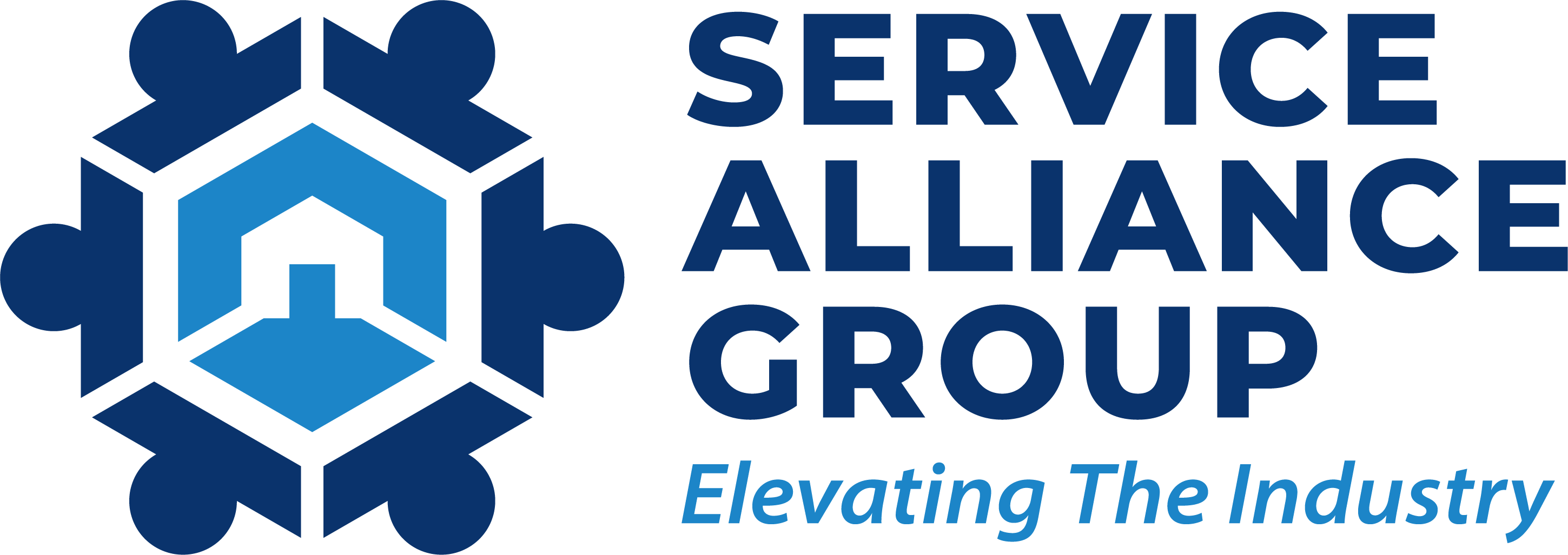Effective Dispatching Strategies to Keep Your Techs’ Schedules Moving
Are you looking to enhance your field technician operations and maximize productivity? This blog will explore how efficient scheduling, faster response times, and optimized resource allocation can help reduce fuel costs and improve technician productivity. By implementing effective dispatching strategies, businesses can streamline operations and provide prompt customer service. Join us as we delve into the key factors that can significantly impact field technician performance.
4 Dispatching Challenges

Tight Deadlines & Uneven Flow of Work
Dispatchers in home service companies face numerous challenges when handling tight deadlines and an uneven workflow. These challenges require them to effectively coordinate and manage jobs while ensuring a quick response to emergency call-outs.
1. Efficient communication skills are essential for dispatchers to coordinate with technicians, customers, and stakeholders.
2. Prioritizing tasks based on urgency and allocating resources accordingly is crucial for effective dispatching.
3. Implementing a dispatch software system can streamline job assignment and scheduling, allowing for easy tracking of technicians’ availability and real-time updates on job status.
4. Standardized workflow processes help eliminate confusion and ensure efficient job completion by establishing clear protocols for handling different types of jobs.
Businesses can optimize technician schedules and enhance overall field service operations by addressing these dispatching challenges.
Inefficient Route Planning
Inefficient route planning has become a significant dispatching challenge for home service industries such as appliance repair companies, HVAC companies, plumbers, and electricians. Without proper route optimization, technicians may travel long distances between jobs, wasting time and increasing operational costs.
For appliance repair companies, inefficient route planning can result in delayed service appointments, frustrated customers, and lost revenue. Technicians may spend more time on the road than servicing appliances, impacting their productivity and ability to meet customer expectations.
HVAC companies face challenges when technicians are dispatched inefficiently. Traffic delays and poor route planning can lead to missed appointments, customer dissatisfaction, and decreased profitability. Excessive travel time can also increase wear and tear on company vehicles and fuel expenses.
Plumbers also struggle with inefficient route planning, which can cause delays in responding to emergency calls or completing scheduled maintenance tasks. This not only affects customer satisfaction but also impacts the overall efficiency of the plumbing business. Unnecessary travel between jobs can result in higher operational costs for the company.
Electricians face similar dispatching challenges when routes are not optimized effectively. Delays in reaching job sites due to traffic congestion or poor planning can lead to unhappy customers and potential loss of business. Inefficient route planning also increases operational costs for electricians by wasting valuable resources such as time and fuel.
Inefficient route planning poses significant challenges for home service industries by affecting technician productivity and customer satisfaction levels, increasing and causing unnecessary wear-and-tear on vehicles.
Poor Communication with Customers
Poor customer communication can lead to several challenges for home services businesses, particularly in the appliance repair, HVAC, plumbing, and electrical industries. One main issue arising from inadequate communication is the lack of real-time customer updates. Without efficient dispatching processes in place, technicians may not be able to respond quickly to service requests, leading to longer response times and dissatisfied customers.
Inefficient communication also hinders the seamless coordination of tasks between technicians and customers. Without timely updates on job progress or scheduling changes, customers may feel frustrated and uncertain about when their service will be completed. This can result in decreased customer satisfaction and loyalty.
Poor communication can lead to missed appointments or scheduling conflicts, causing delays in service delivery and impacting overall efficiency. When customers are left waiting for an appointment that doesn’t arrive on time or technicians are dispatched to incorrect locations due to miscommunication, it reflects poorly on the business’s professionalism and reliability.
Home service businesses must communicate effectively to provide satisfactory customer service. Implementing strategies such as real-time updates, efficient dispatching processes, faster response times, and seamless communication channels will help businesses overcome these challenges and improve customer satisfaction.
Lack of Automation & Tracking
Lack of automation and tracking in dispatch processes in home service businesses can lead to several problems. Without real-time data and automated systems, businesses may struggle to efficiently assign field service technicians to jobs, leading to delays and inefficiencies. Manual processes for scheduling and dispatching can result in errors, missed appointments, and unhappy customers.
Without the ability to track technicians’ locations and progress in real-time, businesses may not be able to provide accurate arrival times to customers. This lack of transparency can lead to customer frustration and dissatisfaction, ultimately impacting the business’s reputation and long-term success.
With customers demanding prompt and efficient service, relying on manual processes without mobile devices or automated dispatch software can hinder a home service business’s ability to meet customer demands. Automation and tracking are essential for ensuring that technicians are assigned efficiently, jobs are completed on time, and customers are satisfied with the service.
1. Hire the Right Dispatchers
Hire the Right Dispatchers for Effective Dispatching Strategies
For a home service company, hiring the right dispatchers is crucial. Here are the key qualities and skills you should look for when hiring dispatchers for your appliance repair, HVAC, plumbing, or electrical company:
1. Multitasking Abilities: Dispatchers must handle multiple tasks simultaneously, such as managing incoming service requests, assigning technicians, and coordinating schedules. Look for candidates who can effectively juggle tasks, prioritize, and remain calm under pressure.
2. Problem-Solving Skills: Dispatchers encounter various challenges, from handling customer complaints to resolving scheduling conflicts. Seek individuals with strong problem-solving abilities to address issues and ensure customer satisfaction quickly.
3. Organization: Dispatchers are vital in maintaining a well-organized workflow. They must keep track of scheduling details, technician assignments, and customer information. Prioritize candidates who demonstrate excellent organizational skills and attention to detail.
4. Familiarity with the Local Area: Dispatchers should understand the local area well enough to route technicians for timely service efficiently. Seek candidates knowledgeable about your service area’s geography to optimize response times.
5. Effective Communication: Effective communication skills are essential for dispatchers to communicate effectively with customers, technicians, and other team members. Look for candidates who can articulate information clearly, listen actively, and convey messages accurately.
It’s essential to streamline the hiring process to secure top talent quickly. Actively seek candidates with the qualities and skills above and prioritize those who demonstrate a genuine passion for delivering exceptional customer service. By hiring the right dispatchers, you can ensure efficient dispatching strategies that enhance customer satisfaction and drive the success of your home service company.
2. Prioritize “Triage” in Your Dispatch Process
The success of home service companies relies heavily on effective dispatching strategies. Prioritizing “Triage” in the dispatch process ensures efficient and prompt service delivery. Triage refers to sorting and prioritizing incoming service requests based on their urgency and importance.
Dispatchers should follow specific strategies to effectively prioritize calls.
-Establishing a clear protocol for handling urgent requests is important. This involves promptly identifying emergencies, such as gas leaks or electrical failures, and ensuring that these cases receive immediate attention.
-Dispatchers can implement priority service for customers with service level agreements or those in critical situations. By prioritizing these customers, home service companies can maintain their commitment to delivering top-notch service and meeting contractual obligations.
-Dispatchers should consider the availability and proximity of technicians when prioritizing calls. Assigning jobs to the closest available technician can significantly reduce response times and enhance customer satisfaction.
-Effective communication between dispatchers and technicians is vital. Clear and concise instructions should be provided to ensure technicians fully understand the urgency and nature of each call, enabling them to respond appropriately.
A home service company’s dispatch process must prioritize “Triage.” Companies can enhance their efficiency and provide exceptional customer service by implementing effective dispatching strategies such as establishing clear protocols, offering priority service, considering technician availability, and maintaining effective communication.
3. Front-Load Your Workdays
Front-loading workdays can greatly benefit service technicians by maximizing productivity and improving customer satisfaction. This strategy can help businesses optimize resource utilization in the dispatching system.
One essential tip for front-loading workdays is scheduling non-urgent jobs in the morning. This allows technicians to start their day with less time-sensitive tasks, enabling them to work steadily and provide high-quality service. It also minimizes the chances of delays or rescheduling due to unforeseen circumstances.
Keeping the afternoons open for urgent calls is equally important. Businesses can prioritize customer needs and respond promptly by reserving this time for emergencies or last-minute requests. This flexibility enhances customer satisfaction and demonstrates a commitment to promptly addressing urgent issues.
The workload must be monitored, and tasks must be distributed evenly among technicians. Businesses can ensure a fair distribution of work by keeping track of the number and complexity of jobs assigned to each technician. This helps prevent employee burnout and ensures every job receives the attention it deserves.
4. Focus on Route Optimization
Route optimization is critical in effective dispatching strategies for home service companies. It involves minimizing travel times and maximizing fuel efficiency, which can greatly benefit appliance repair, HVAC, plumbing, and electrical businesses.
Home service companies can significantly reduce travel times by optimizing routes, resulting in more efficient operations. This means technicians spend less time on the road and more time servicing customers. Minimizing travel times helps increase the number of jobs a technician can complete in a day and enhances customer satisfaction as customers receive prompt service.
Route optimization enables businesses to maximize fuel efficiency. Companies can reduce unnecessary mileage and fuel consumption by planning the most efficient routes. This not only reduces costs but also helps to minimize the environmental impact of the company’s operations.
Another advantage of route optimization is the ability to group jobs by proximity and technician availability. By assigning jobs near each other, companies can reduce travel times and increase productivity. Considering technician availability ensures that jobs are assigned to the most suitable technician, further streamlining the dispatching process.
Route optimization also involves smart routing. It allows companies to navigate potential cone zones or traffic constraints, further enhancing travel time efficiency. Technicians can reach their destinations more quickly if they avoid congested areas or road work.
5. Automate & Track Your Dispatch Process to Maximize Profit
A successful home service company must streamline its dispatch process for maximum profit. Automating and tracking this process can ensure efficient resource allocation and prompt customer service. You can accomplish this by following these steps:
1. Invest in Dispatch Software
2. Real-time Tracking of Technician Progress
3. Skill-based Assignments
4. Automate Customer Communication
You can optimize resource allocation, reduce errors, and deliver prompt customer service by automating and tracking your dispatch process. This maximizes profit and enhances customer satisfaction, leading to repeat business and positive referrals. Embrace technology and invest in dispatch software that caters specifically to the needs of your home service company.
Conclusion: Effective Dispatching Strategies
Appliance repair, HVAC, plumbing, and electrical companies must utilize effective dispatching strategies to maximize technician productivity and time. A company can build trust with clients by making informed decisions and utilizing real-time tracking to ensure successful dispatching operations.
Optimizing technician arrival times through route optimization and skill-based assignments increases efficiency and enhances customer satisfaction. Automating the dispatch process and using technology to communicate with customers can further streamline operations and provide energy-efficient solutions.
These key strategies can help home service companies improve their bottom line while providing exceptional service to their clients in the appliance repair, HVAC, plumbing, and electrical industries. Investing in dispatch software tailored to their specific needs will help them stay ahead of the competition and grow their businesses successfully.






